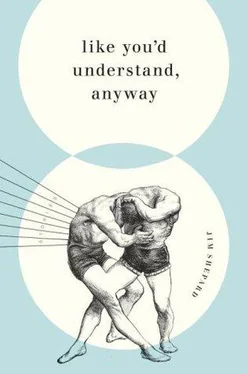“They'll fight tomorrow,” he says from out of the darkness beside me. When I ask him why, he reminds me that the Spartans will arrive the following day.
My brother is always right. Over the morning breakfast fires, we watch the invader's muster. Kynegeiros goes about the business of preparing without acknowledging what's before him. It's a mesmerizing sight and it fills the plain from the mountain to the sea. There doesn't seem to be enough earth to hold all of the activity. Dust kicked up floats slantwise across their ranks in the rear. Their line as it forms looks to have a frontage of about fifteen hundred men. The formations are at least ten to fifteen men deep. The Persians themselves, flanked by the Sakai, form the center. And this is without yet any sign of their cavalry.
Kynegeiros is still refusing to look, like a boy trying to impress me. Finally, we're sixteen together.
We're in the hands of god's justice, one way or the other: the battle pennant, now hoisted, informs us that the command which rotates on a daily basis among the strategoi falls today to Milti-ades, who argued the most insistently for our march out to face the invader in the first place. All around us in our tribe we're surrounded by the kind of sons of aristocratic families who give themselves epithets, the way that young people do: nicknames like Sacred Erection or the Self-Abuser. They take courage from one another and from us the way each ship takes courage from its moorings. They present the invader with a version of Hellas bare and lean as a wolf.
Some of us write on small wax tablets or tree bark or potshards scraps of messages for family members or wives. My brother and I each write a line on the disposition of our property. Armorers pass among us with sacks to collect the notes for safekeeping back at the armament wagons with the sacrificial goats.
The squires begin arming citizens from the feet up: bronze greaves prised apart for fitting, then secured by the natural springiness of the metal.
It goes without saying that my brother will handle our private commerce with the gods. He mixes a little of our honey and wine in our grandfather's clay bowl to prepare the drink for Earth, and to give the thirsty dead their sip: libations poured down into Earth's hidden rooms to sweeten dead men's attitudes. Libations for our brother, listening in his buried dark. Soon he'll hear his dirt ceiling groan as it's hammered and scratched open.
Kynegeiros pours the mixture, and a straw-brown mantis with feathery grasping claws walks through the wet when he's finished. On the army's temporary altar nearby, two other goats are kept in reserve in case the bleeding from the first reads inauspiciously.
Even the cynics recognize the usefulness of these rituals: someone's always seeing an eagle when they need to before battle.
When a city falls, the universe is upended, and things are toppled that once climbed to heaven, and bound that should be free. The Persians have upset the natural order of things. As have I.
The final libations have been poured, the omens scrutinized and teased forth. There's that pause, as at a banquet when the tables are cleared and the floors swept of shells and bones. We take our places in the lines, neighbors holding out their hands as they pass, touching fingers like boys sliding palms along fence posts.
Now it's just men waiting in the heat. Squires circulate with water. My brother stands to my right. To my left is a neighbor we call Crayfish because he loves them and because his eyes unmoor from their pairings. The felt of his undercap is already soaked. Clouds like islands of migratory air sail by.
I've prayed. Now I must bring my prayers to flower. My brother beside me marks his place for my father, mother, and brother who died. If I weep my love for the chambered dead, will those tears restore me? The dead's grievances live on and on. I stand shoulder to shoulder with those I love while a flood tide of self-hate beats the prow of my ship. For Kynegeiros, one brother's loss and the other's shame is a grief past bearing, a tether ring that tears against all pulling. We must heal ourselves. Our cure is blood for blood. The ability to live with ourselves must be earned with the spear. We're the corks that lift the nets and the lines that rise from the depths.
He's the man who instructed me in bivouac and foraging, dress and parade rest. He taught me how to balance a pack animal's load. Where in the kit bag to stuff the oil lamp. The usefulness of a hand-mill for grain.
Any contact he's had with me has been a mercy. Orestes after the murder of his mother was given his own table and drank separately from a cup touched by his mouth alone.
After we had carried my brother's body outside the walls of the town, after the pyre, after the ashes and bones had been gathered in his cerecloth and consigned to the urn, after the last libations had been poured, our clothes and house purified with sea water and hyssop, his cult was inaugurated with sacrifice on the third, ninth, and thirtieth days after the funeral, and then on all subsequent anniversaries.
The night after the purification our father, drunk, quoted to us Hesiod's advice about families: “Try, if you can, to have only one son, to care for the family inheritance: that's the way wealth multiplies in one's halls.”
He then added that it was a great deal to have been granted even a few years' happiness by the deity.
I found Kynegeiros in the hills above our house some hours later. He was on a slope near a cluster of dead-nettle and mint. He stayed bent-backed, and I stood about. We were like an old man and a soft-boned child. I wanted to say to him: You will not wear me down. All can still be well. I wanted to say to him: How can an infant explain his hunger or thirst or need for his pot? Aren't his insides a law unto themselves? But I knew better than to voice my self-pity.
The past enters and floods our present while we wait. I've labored to the top of this hill, and it's taken half my life to get here and the other side slopes down. Today once again we'll trust in the way heaven's law compels but not always protects its human allies. Today he'll teach me even more about the war between the self and the world, the self divided into soul and body, the body usually acting as the traitor within the gates. He'll lead me to that magic which we recognize in dreams that make the face of the sleeper relax. He'll show me how my shame could rise like a glad bird and vanish over the shoulder of the hill. I can wish us united in good feeling and in hate, with a cure for every injury, though I know there's no regaining what's gone. We'll act so that something better can be rendered in the days to come.
Medes, Egyptians, Dacians, Illyrians: they're all drawn up now, in full panoply, their marshaling positions invisible against the sheer mass. The marsh behind them is a stretch of searing sun where the air goes hazy with mosquitoes. Nothing moves on the hillside up above them to our left. Braced planks arrest the spill of a wall down the slope in the distance.
They wear trousers. Boots dyed purple or red. Quilted linen tunics. Cuirasses with metalwork like the meshings of a net. Open-faced helmets and animal skin headdresses. Bowcases of leopard skin. Here they come, eager for combat, packed man on man: spear-tamers, horse-breakers, endurance and malice and fear on their faces, in horizon-crowding lines, with their curved Scythian swords and double-ended pig stickers, the flower of the wide world's earth stepping forward while their parents and wives and younger brothers in their cold beds back in Asia count the days they've been gone.
At the signal from our strategos, we hammer our spear shafts on the outer curve of our shields. When we cease, he gives the order to swing down and fit snug the bronze facing of our helmets, and then to advance.
Читать дальше












